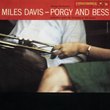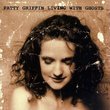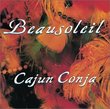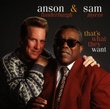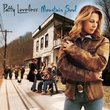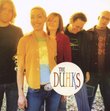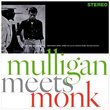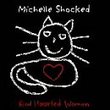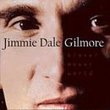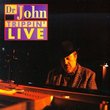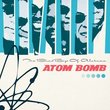| All Artists: Ella Fitzgerald, Louis Armstrong Title: Porgy & Bess Members Wishing: 0 Total Copies: 1 Label: Polygram Records Release Date: 10/25/1990 Genres: Jazz, Pop, Classical, Broadway & Vocalists Styles: Swing Jazz, Traditional Jazz & Ragtime, Vocal Jazz, Oldies, Vocal Pop, Opera & Classical Vocal, Historical Periods, Modern, 20th, & 21st Century, Classic Vocalists, Traditional Vocal Pop Number of Discs: 1 SwapaCD Credits: 1 UPC: 042282747525 |
Search - Ella Fitzgerald, Louis Armstrong :: Porgy & Bess
 | Ella Fitzgerald, Louis Armstrong Porgy & Bess Genres: Jazz, Pop, Classical, Broadway & Vocalists
Getting the two most personable voices in jazz to sing an hour's worth of George Gershwin's opera Porgy & Bess (Ella doing all the female parts, Satchmo all the male) was a good idea, but not quite as great as it sound... more » ![header=[] body=[This CD is available to be requested as disc only.]](/images/attributes/disc.png?v=15401716) ![header=[] body=[This CD is unavailable to be requested with the disc and back insert at this time.]](/images/attributes/greyed_disc_back.png?v=15401716) ![header=[] body=[This CD is unavailable to be requested with the disc and front insert at this time.]](/images/attributes/greyed_disc_front.png?v=15401716) ![header=[] body=[This CD is unavailable to be requested with the disc, front and back inserts at this time.]](/images/attributes/greyed_disc_front_back.png?v=15401716) |
CD DetailsSynopsis
Amazon.com Getting the two most personable voices in jazz to sing an hour's worth of George Gershwin's opera Porgy & Bess (Ella doing all the female parts, Satchmo all the male) was a good idea, but not quite as great as it sounded. Armstrong savors the down-and-dirty Charlestonisms that inspired the cadences of the music and lyrics, and they fit his happy rasp like an old shoe; Fitzgerald, conversely, sounds almost prissy every time she has to sing the word "ain't," though her melodic genius gets Gershwin's bold, supple tunes over. The arrangements are full-throttle Broadway, with a few leaps into Dixieland (including some fine Armstrong trumpet solos), but the disc works best when the vocalists break character and let their jazz side out. --Douglas Wolk Similar CDs
Similarly Requested CDs
|
CD ReviewsSimply great Shamrock | Hellevoetsluis, The Netherlands | 03/04/2006 (5 out of 5 stars) "The fusion between the great two voices and the orchestra is just brilliant. Very good brass and violins that accompany Fitzeralds and Armstrongs magic voices leaves you with your mouth open. A must have for everyone!" Once-in-a-lifetime greatness Jesse Kornbluth | New York | 10/05/2006 (5 out of 5 stars) "Two thousand five hundred musicians have recorded "Summertime" --- it's a classic. (I bet most Americans can name Janis Joplin and no other singer.) As for "Porgy and Bess," the folk opera from which "Summertime" springs, it's such a classic that it's hard to believe anyone ever had a harsh word to say about it. But after its premiere in 1935, no less than Duke Ellington said, "It has grand music and a swell play, but the two didn't go together. It does not use the Negro musical idiom --- the times are here to debunk Gershwin's lampblack Negroisms." A quarter of a century later, the producers of the film version had trouble assembling a cast. Harry Belafonte rejected their offer to play Porgy. Sidney Poitier took the part --- and wished he hadn't. Poitier later wrote that the movie insulted black people; when he chose clips of his best performances for his tribute at the American Film Institute, he picked nothing from "Porgy and Bess." And in 1985, when Grace Bumbry was a sensation as Bess in a Metropolitan Opera production, she slammed the opera: "I thought it beneath me, I felt I had worked far too hard, that we had come far too far to have to retrogress to 1935." All that may be. All I know is that I have, in a long life, rarely been confronted with more genius than in the Fitzgerald/Armstrong recording of "Porgy & Bess." Set aside the achievement of George and Ira Gershwin in transforming DuBose Heyward's novel into a folk opera. Let's just focus on Armstrong and Fitzgerald, who were at the peak of their popularity when this record was made in 1957. "Summertime" --- the first song --- sets the tone. A baleful horn figure, then violins. And then Armstrong's trumpet: slow, steady, dignified. But wait --- here comes a slurred note. And a cool little improvisation. Just enough of each. Very tasty. Fitzgerald sings a verse. She is cool and formal. A lady. Not to be taken lightly. Now it's Armstrong's turn. Tender, but let's not kid ourselves --- this is not singing as others define it. This is melodic speech: rough, gutteral. And thus he is ideally cast: His Porgy may have his charms, but he'll have to stretch to keep Bess. And so it goes throughout the CD. Trumpet mastery --- Armstrong has dazzling control. His tone is bright, but never shrill; there's a warmth in his playing no one else could produce. And Fitzgerald is just a study in inevitability; to hear her is to wonder how anyone could sing these songs any other way. "I Got Plenty O' Nuttin'." "Bess, You Is My Woman Now." "A Woman Is a Sometime Thing." "There's a Boat Dat's Leavin' Soon for New York." "Bess, Oh Where's My Bess?" "Oh Lawd, I'm on My Way." All brilliantly conceived, orchestrated and recorded. The greatest trumpet player in this history of jazz. The father of scat singing. The queen of the jazz vocal. There are no-brainers, and then there is this Ella Fitzgerald-Louis Armstrong collaboration --- music that imprints on your soul." We love this album Nancy Burget | 08/22/2006 (5 out of 5 stars) "We hope they will someday bring this beautiful story back to the stage"
|

 Track Listings (15) - Disc #1
Track Listings (15) - Disc #1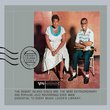
![Gershwin: Porgy & Bess [With Members of the Original Cast]](https://nationalbookswap.com/cd//m/71/7871/117871.jpg)
